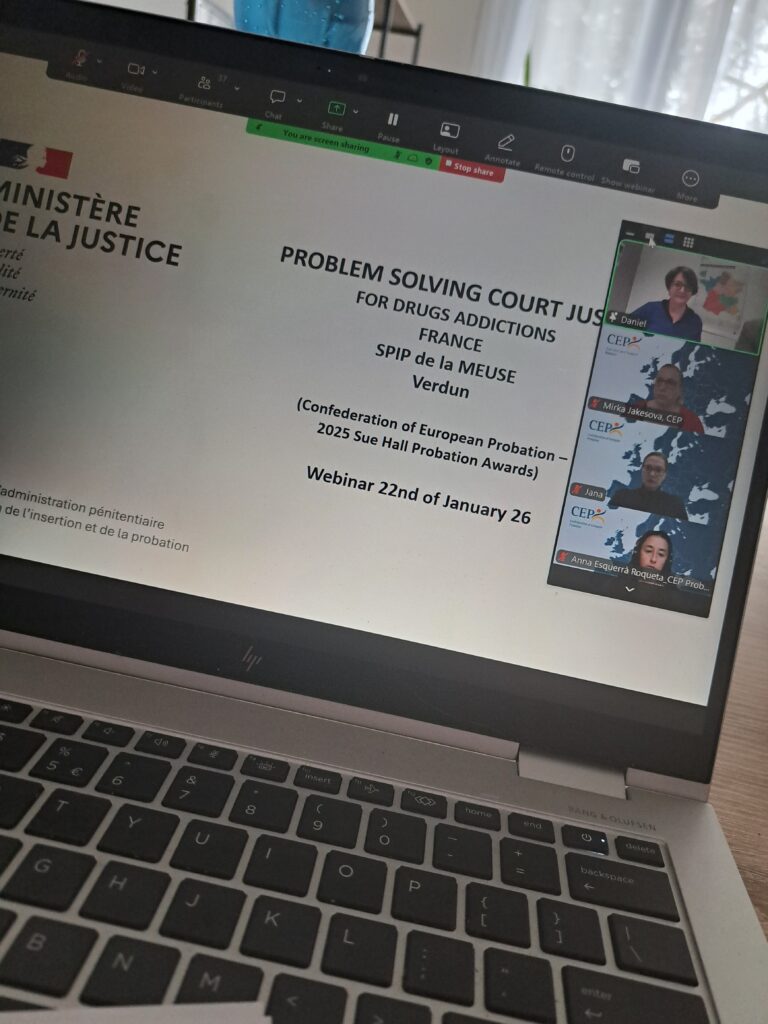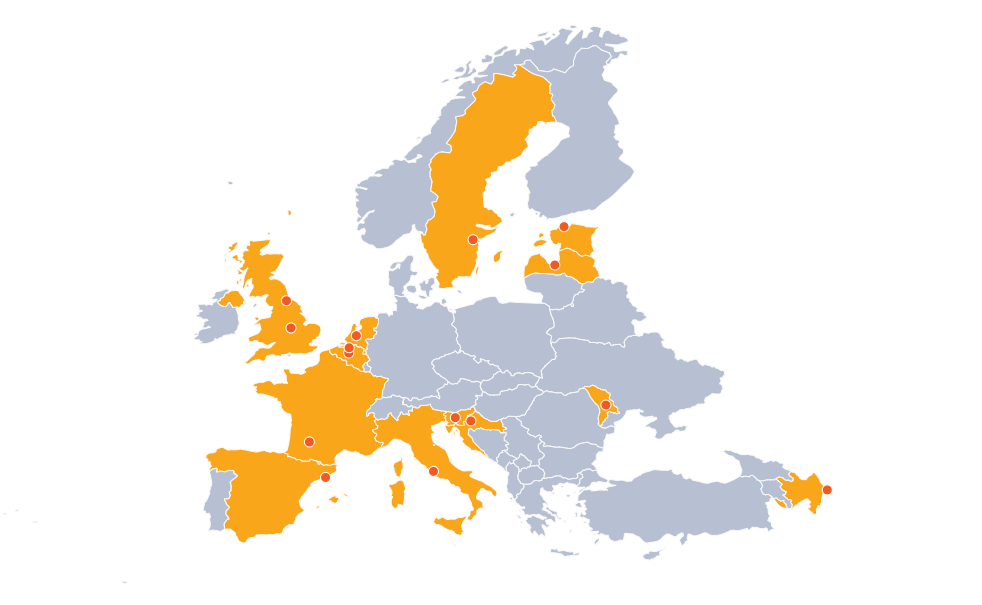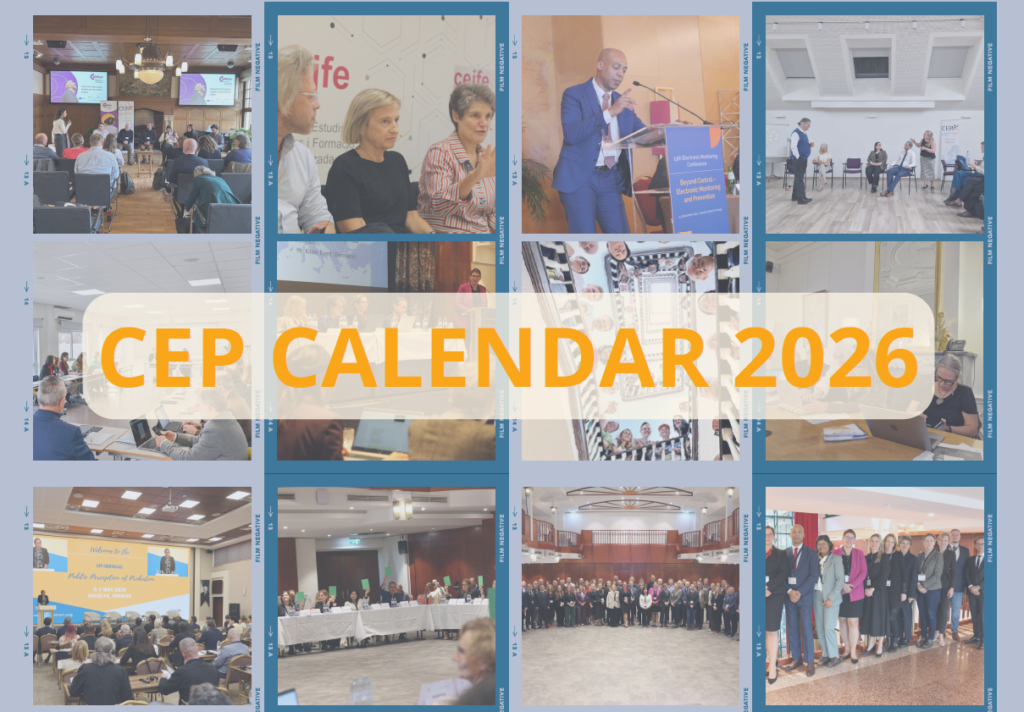Previous Article
News
DERAD project: prevention of the escalation of radicalization in the prison environment
CEP is associated partner of the DERAD project. DERAD is a European project that aims to prevent the escalation of radicalization in the prison environment and help prisoners and probationers who are often exposed to Jihadist recruitment or self-radicalization to overcome the different problems and push factors usually exploited by recruiters. The project is led by the Italian Ministry of Justice. In a brief interview, Mr. Enrico Sbriglia, Regional Superintendent of Penitentiary Administration for Veneot, Trentino Alot Adige e Friuli Venezia Giulia, gives us insights in the project.

Q: “Why was the DERAD project launched? And what are its main objectives and target groups?”
“I am convinced that all EU countries feel the need to strengthen a common prevention strategy (although sometimes it may have been perceived in late) opposed to any form of violent religious radicalism.
The world of prisons and penal execution as a whole (through prison sentences and alternative measures and probation) represent the last trench, the last line of a war front which, though not the same as traditional and terrible as the “traditional” wars, even though are being fought in different areas of the world, in Africa and in the Middle East in particular, is not less important and indeed turns out to be perceived as closer by our EU citizens.
DERAD project aims therefore to make an effective contribution to counter radicalism, especially homogenizing the action of the sentence execution operators performing their work both in prisons and outdoor environments, favoring the creation of a shared “modus operandi”, which will make the best collaboration that can be formed by talking and discovering the strengths of each individual statehood, Police Forces and of those, criminal enforcement workers, magistrates, etc., who are already involved in this complex and by now international struggle.
In this context, significant contributions can be and are also expected from the Academia and from that represented by the NGOs, as well involved in our project.
May exist and co-exist different ways of doing and be safe; with DERAD we want to give priority to the instrument that we consider the formidable, rigorous Culture of Human Rights, Civil Rights, the respect due to each person, “forcing”, with a style of prisons government based on law, celebrated in the constitutions and European conventions, the radicalized subjects, to observe and discuss with us, both within prisons, where we need to refine the methods of recognition of the alleged radicalized subject, albeit submitting him to a more sophisticated and invisible control system, both outside, when, in a progression of reasonable expectations and results, it’s considered that there are real possibilities of recovery in the social and in the free dialectic of our communities, able to include and not exclude any form of peaceful religions and believers.
The main target groups of the DERAD project, which then will be the main actors-agents, are precisely the prison workers as a whole, then the Police and non-governmental associations, which represent the best trade-union with social problems and difficult Community issues to which they address their meritorious actions.
Facilitators subjects, even if partners, are the judicial authorities and the University Academic World.
Similar purposes, such as for DERAD project, albeit more fully characterized and concentrate on Criminal Execution operators as a whole, which deal in the field, in prisons and in city neighborhoods, are pursued with the project TRAINING AID.”
Q: “DERAD and TRAINING AID are European projects: how they reach their target groups across Europe?”
“Through continuous and periodicals, as well as planned, work “operational” meetings, where possible strategies are refined. Meetings that take place in each of the states involved in the projects, refining thus the technical and legal language, and the detailed actions to be pursued in states and, especially, in the prisons. A common commitment to seek a common denominator in the concrete action.”
Q: “What can we expect from the projects, in terms of output?”
“The formation of a common awareness, supplemented by the knowledge of the methods already present in every state, in order to promote, waiting for the necessary changes and regulations updating hoped, the adoption of a common concrete practice, through the sequence of the actions that allows us, more quickly, to identify any errors of assessment, to ensure the best constant prevention and law enforcement strategies, in order to be able to proceed more effectively in continuous processing operations and “fixing” of the systems to which the DERAD and TRAINING AID projects aim.”
Q: “How do you consider the role of probation in the prevention of radicalization?”
“Fundamental and decisive, if carried out and provided by highly professionalized operators and that have the necessary resources, especially in order to help strengthen of social networks which not only foster control but, in particular, offer a hope of mediation and better coexistence.”

Related News
Keep up to date with the latest developments, stories, and updates on probation from across Europe and beyond. Find relevant news and insights shaping the field today.
New

Alternatives to pre-trial detention, Community Sanctions and Measures, Framework Decisions, Technology
Future of Criminal Justice: CEP’s Contribution to Key 2025 Dialogues
27/01/2026
Throughout 2025, CEP and its representatives actively participated in the online Technical meetings ahead of the HLF as well as the High Level Forum on Future of Criminal Justice taking place on 4-5 March 2025, 20-21 May 2025 and 1-2 October 2025 in Brussels, Belgium.
Recap

Alternatives to pre-trial detention
Recap: Webinar on Alternatives to Detention 2026
26/01/2026
On Thursday 22 January, CEP hosted the first webinar of 2025 on the topic of Alternatives to Detention. The session led by Ms. Marina Pajoni from the French Prison and Probation Service titled „Problem Solving Justice in Pracitce: The Meuse Probation Service´s Approach to Drug Addiction“ introduced an innovative programme developed by the Meuse Probation Service in close cooperation with the French Ministry of Justice.
New

Education and Training
CEP launches an interactive European map of probation education and training institution contacts
22/01/2026
The CEP is pleased to inform its members that a new dedicated section has been developed on the CEP website featuring an interactive map of Europe.
New

CEP Events
CEP activity calendar 2026
20/01/2026
As we begin the new year, we would like to thank all CEP members, partners, and participants for your continued engagement and valuable contributions. Your involvement plays an essential role in shaping CEP’s work and activities.
We are pleased to share the CEP calendar for 2026, which provides an overview of the events planned for the year ahead. We look forward to continuing our collaboration and welcoming you to upcoming CEP activities throughout the year.
Thank you for being part of the CEP community.
New

CEP members, Gender-based violence
Interventions Alliance’s Eden House Recognized as Outstanding
15/01/2026
CEP is delighted to share that Eden House, an Interventions Alliance residential service for women with high-risk or complex needs on probation, has been rated “Outstanding” overall by HM Inspectorate of Probation. In 2022, Eden House was honored with the CEP Public Protection Award. Our sincere congratulations to the team for this remarkable achievement.
New

Education and Training
The Judicial Training Dashboard
14/01/2026
The European Training Platform (ETP) is a search tool for justice professionals. You can find self-learning materials on a great variety of EU law practice areas and related topics, as well as links to training providers’ homepages and course catalogues.
Subscribe to our bi-monthly email newsletter!
"*" indicates required fields
- Keep up to date with important probation developments and insights.

